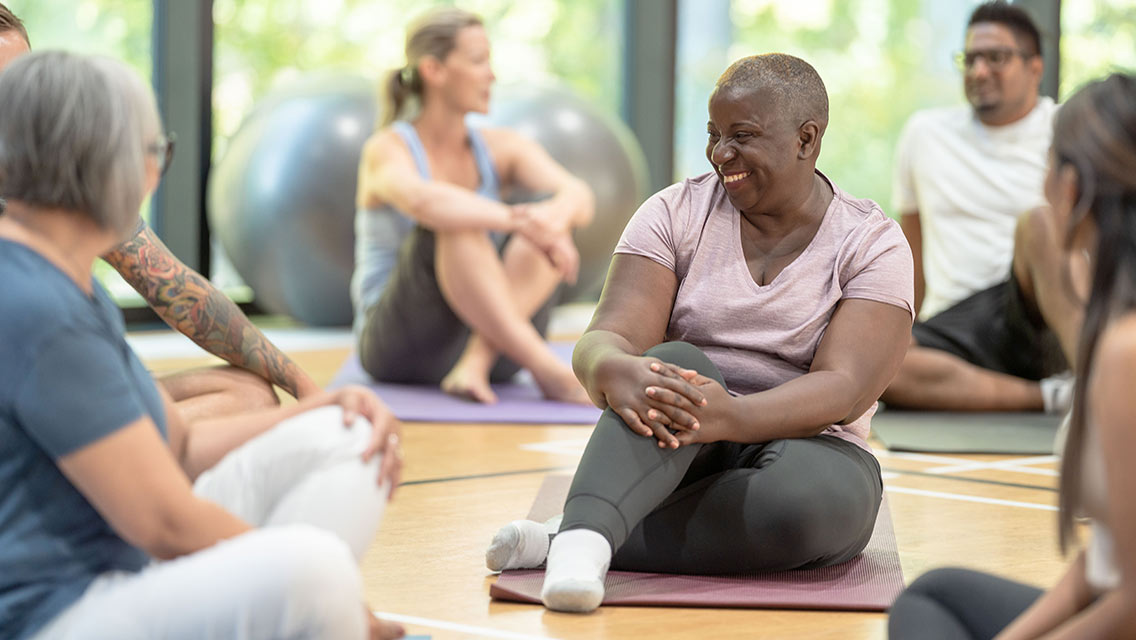What do you say when a friend or loved one announces they’ve been diagnosed with cancer? You want to express your sympathy, certainly; maybe offer some words of support. It would not occur to me, however, to recommend that they ramp up their workout regimen.
Yet a raft of recent studies suggest that exercise may boost the immune system and slow tumor growth — even among terminally ill patients.
Last month, researchers at the University of Turku in Finland published the results of the second of two studies showing how moderate exercise increased the number of immune cells in the blood of 28 patients who had recently been diagnosed with lymphoma and breast cancer. The results, notes research assistant Tiia Koivula, debunked the widespread notion that inactivity is the best response to a cancer diagnosis.
“It was previously thought that cancer patients should just rest after a cancer diagnosis,” Koivula says. “Today, we have more and more researched information that exercise can even improve the prognosis of cancer.”
Each of the study participants, who ranged in age from 20 and 73, pedaled a stationary bike for 10 minutes and researchers took blood samples before and after the session. The lymphoma patients saw their cytotoxic T cells and natural killer cells increase during their workout; those with breast cancer showed an increase in white blood cells, cancer-fighting intermediate monocytes and B cells, and cytotoxic T cells and natural killer cells.
“It is especially interesting that we saw an increase in cytotoxic immune cells during the exercise in both patient groups,” Koivula notes. “These immune cells are capable of destroying cancer cells.”
“It is especially interesting that we saw an increase in cytotoxic immune cells during the exercise in both patient groups. These immune cells are capable of destroying cancer cells.”
The more intense the workout, she adds, the more immune cells enter the bloodstream. But whether they eventually target cancer cells in humans remains a mystery — though it’s been shown to occur in preclinical studies.
At Edith Cowan University in Australia, for instance, a small group of men diagnosed with advanced prostate cancer were able to increase their production of cancer-fighting proteins called myokines after about a half hour of high-intensity exercise. And when researchers added the blood serum to prostate cancer cells in a culture dish, the myokines suppressed the growth of the cells by 17 percent. The study was published last November in the journal Prostate Cancer and Prostate Diseases.
Myokines, on their own, can’t kill cancer cells, researchers note, but they signal T cells to attack.
“This study provides strong evidence for the recommendation [that] patients with prostate cancer, and likely anybody with any cancer type, should perform exercise most days, if not every day, to maintain a chemical environment within their body which is suppressive of cancer cell proliferation,” explains study supervisor Rob Newton, PhD.
“This study provides strong evidence for the recommendation [that] patients with prostate cancer, and likely anybody with any cancer type, should perform exercise most days, if not every day, to maintain a chemical environment within their body which is suppressive of cancer cell proliferation,” explains study supervisor Rob Newton, PhD.
“This is helping us understand why patients with cancer who exercise exhibit slower disease progression and survive for longer.”
All three studies build on earlier research at Karolinska Institutet in Sweden, where researchers were able to show how active lab mice were able to slow cancer growth by producing elevated levels of immune cells. Lead study author Helene Rundqvist, PhD, and her team then took blood samples from a small group of healthy men after 30 minutes of intense cycling and found increased levels of the same metabolites.
“Our research shows that exercise affects the production of several molecules and metabolites that activate cancer-fighting immune cells and thereby inhibit cancer growth,” Runqvist explains. “We hope these results may contribute to a deeper understanding of how our lifestyle impacts our immune system and inform the development of new immunotherapies against cancer.”
These are all small studies and, as they say, more research is needed before any real consensus develops on the cancer-fighting potential of exercise. But even if the evidence was solid, I’m probably not ready to recommend a regular workout next time I encounter a friend or relative who’s facing a fraught diagnosis. It’s probably not what they need to hear.
Better instead to remind myself to get to the gym tomorrow — before some serious cancer catches up to me. That’s what I need to hear.





This Post Has 0 Comments